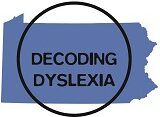Understanding IEP Evaluations: A Brief Overview
This guide is designed to provide a brief overview of evaluators and the instruments that may be used during an evaluation for an IEP or Dyslexia.
Who can diagnose dyslexia?
In most cases, testing for dyslexia is completed by a licensed educational psychologist. Neurologist’s and other medical professionals may also be qualified to make a formal diagnosis. Frequently, you will hear neuropsychologists or school psychologists as well.
Dyslexia is not a disease or an identifiable physical condition. It is a learning style assessed through a series of tests that identifies a learning profile that shows a pattern of typical strengths and weaknesses. Other causes of these symptoms must also be ruled, ie: vision and hearing problems.
The University of Michigan’s Dyslexia Help program provides one well respected resource on diagnostic instruments for diagnosing Dyslexia and Language Disorders. The site breaks down appropriate testing in various developmental age brackets from Birth to Adulthood.
Typically before your appointment, the evaluator will gather background information about your child and the reasons you are seeking an evaluation. Parents and teachers (not always) will be given questionnaires about your child’s behavior and performance. At the appointment, the evaluator will give tests based on your child’s age and the areas of concern. Typically, tests in a dyslexia evaluation measure phonological awareness, rapid naming, reading comprehension, spelling, writing, math, attention, memory, and IQ. Testing usually takes a few hours. A good evaluator provides a written report of the test results, any diagnoses made, and recommendations. A good evaluator also schedules a face-to-face meeting to discuss the results.
For each instrument, the site provides a brief description of each test, the age range, and publisher information.
Their comprehensive list covers instruments that target the following areas:
- Oral and Written Language
- Reading
- Achievement
- Intelligence
- Articulation
- Social Skills
- Motor Skills
Please visit Dyslexia Help for further information. The exact page for evaluation information addressed above can be found here.
Evaluation and IEP Preparation
Disclaimer: Please note that DDPA does not officially endorse, represent, or have a legal connection with any of the resources listed above. These are websites, films, and books that many parents found useful in their personal searches for information on and about dyslexia.
